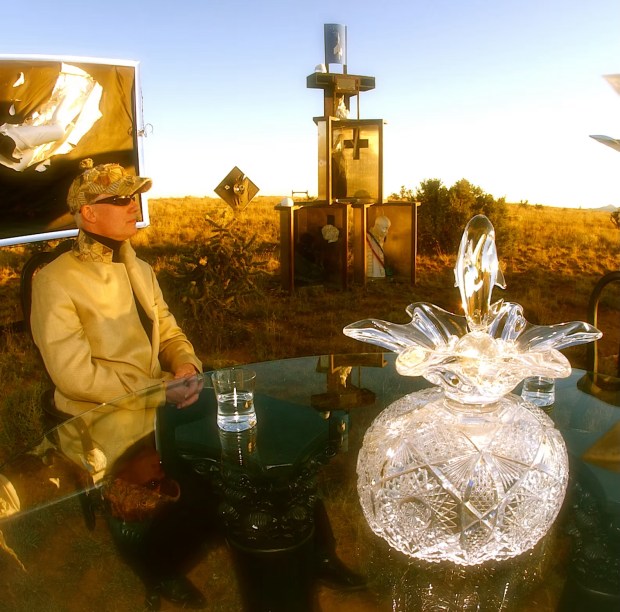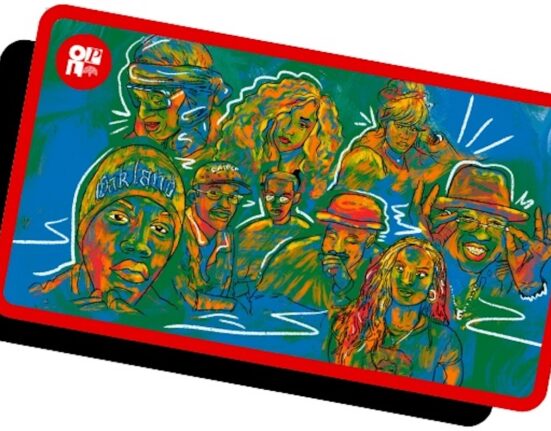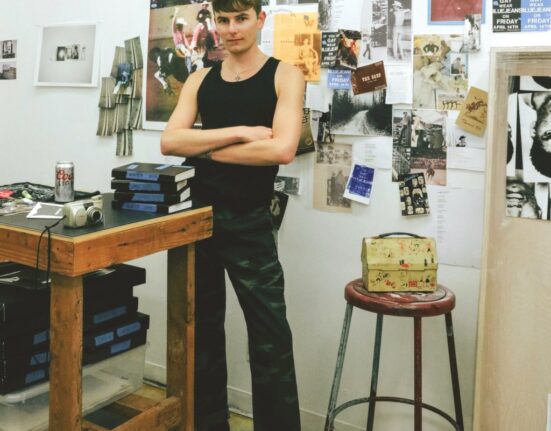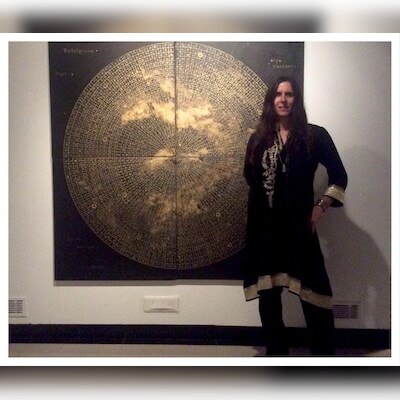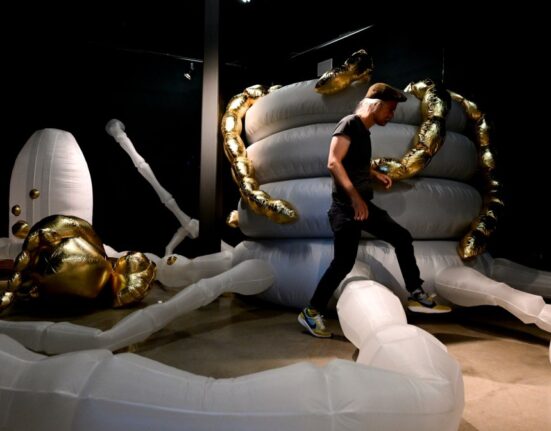Forget everything you know about art. Seriously.
When the Omni Art Experience lands at the Boulder Public Library’s Canyon Theater on May 11, it won’t be your average stroll through the visual arts. If you’re expecting serene mountain landscapes or a tasteful still life of pears, you’re in the wrong theater.
“What is art, anyway?” That’s the question that Jeffrey Milburn has spent four decades trying to answer.
Spoiler: it does not involve fruit. Instead, the Boulder native and founder of the Omni Art Movement invites audiences into a space where paintbrushes give way to piano keys, and meaning isn’t captured on canvas but channeled through consciousness. Omni Art doesn’t represent the world outside — rather, it explores the world within.
The free event runs from 2 to 4 p.m. May 11 and offers a rare opportunity to experience Milburn’s multidisciplinary approach firsthand. Part performance, part philosophy and part artistic homecoming, it brings Milburn back to the city that first shaped his creative vision.

A graduate of Boulder High School and the University of Colorado Boulder, Milburn came of age in the city’s progressive 1960s culture, a place where boundaries were made to be tested. In 1981, he gave a name to his evolving artistic practice: Omni Art. What began in Boulder would later take him to New York City, where he crossed paths with Andy Warhol and participated in the tail end of the Pop Art era. His meeting with Warhol would influence, but not define, the path he chose to take next.
In a world where art is often expected to hang quietly on a gallery wall, Milburn decided to make art that moved, sometimes literally. He coined the term “Omni Art” in 1981 to describe a creative philosophy that isn’t bound to any one form. If that sounds a little bit convoluted, bear with me: Omni Art is a creative practice that uses multiple disciplines to express ideas, states of consciousness and emotional experience. It treats the artist’s inner life as the raw material and allows that material to take whatever form best communicates it — whether that be music, movement, light, visual art, spoken word, costume or a combination of media.
“What Jeffrey is doing is naming something that already exists,” said Ed Sanders, co-host and keynote presenter of the Omni Art Experience event. “Omni Art is a new category, but it’s also a lens. It lets us look back at the last hundred years of art and understand it in a completely different way.”
Sanders is also the president of the OG Foundation, a Los Angeles-based nonprofit focused on education, culture and the intersection of creativity and consciousness. He’s not an art historian in the traditional sense, but that’s part of what makes his voice in this conversation interesting. He approaches art not from a market perspective but from a philosophical one. His work centers on what art does to people, how it moves through culture and why certain ideas arrive when they do.
He was introduced to Milburn about seven years ago through a shared spiritual path — both are longtime students of Eckankar, a modern religion that explores soul travel, inner sound and states of awareness beyond the physical. Their connection began through that shared language and deepened as Sanders began to study Milburn’s work and trace its origins.
Sanders eventually wrote “The Art of Ideas,” a 54-page e-book that functions as both an introduction to the Omni Art Movement and a reexamination of modern art history. In it, he places Milburn in conversation with artists like Kandinsky, Pollock and Yoko Ono, arguing that what these artists were really doing wasn’t abstraction or provocation, but rather a different kind of communication altogether.
“Omni Art does not represent a thing or a material object in the physical world,” Sanders said. “It carries an idea. It expresses a state. It brings energy into view. That’s the whole point. You’re not trying to show something external. You’re making something that communicates what’s happening inside. And not just inside the artist, but inside the person experiencing it too. That’s what Jeffrey is doing. He’s using art to shift perception.”
His role at the Omni Art Experience is more than just introductory. He’ll present excerpts from “The Art of Ideas,” contextualizing Milburn’s philosophy and making the case that it’s time to redraw the map of what art can be, and who gets to define it.
“The way that many art historians view art is dated,” he said. “It’s like doing scientific research with bad assumptions. You can’t keep twisting the data to fit old frameworks. Maybe the assumptions are wrong. Maybe we’re looking at it through the wrong lens, and that’s Milburn’s point. That’s his frustration with the art world — with the critics, the curators, the galleries. They’re still living off the bones of Andy Warhol.”
The two-hour program will move between live performance, multimedia storytelling, philosophical reflection and spontaneous interaction, all centered around Milburn’s artistic journey and the evolution of the Omni Art Movement.
Milburn will perform original compositions and screen his short documentary “The Warhol Years,” which reflects on his time in New York and the creative rift he felt at the tail end of Pop Art. There will also be a selection from “The Universalist Group,” a one-man museum installation created by Milburn that blends sculpture, narrative and sound.
Throughout the afternoon, Sanders will offer context, reading excerpts from “The Art of Ideas” and connecting Milburn’s work to the larger conversation about consciousness and creativity. And unlike many traditional events, this one ends not with a round of applause, but an open invitation for the audience to participate in the dialogue — a Q&A.
Sanders called the event “a moment to reconsider what art can actually do when we stop treating it like a product and start treating it like a doorway.”
He added: “I hope people leave this event feeling more connected to their soul and less confined by the physical world. The world isn’t connected by the material. It’s connected by energy and emotion. That’s the goal of Omni Art: to help people step outside of physical representation and connect more deeply with their feelings, perceptions and the larger oneness that ties everything together.”
The Omni Art Experience will take place from 2 to 4 p.m. May 11 at the Canyon Theater inside the Boulder Public Library, 1000 Canyon Blvd., Boulder. The event is free and open to the public. No tickets or registration are required. Learn more about Milburn and listen to his conversations with various artists at omniartsalon.com.

